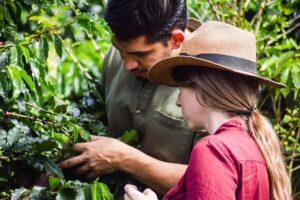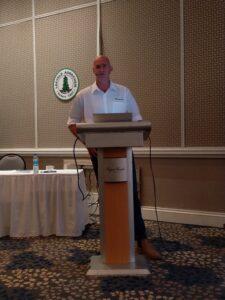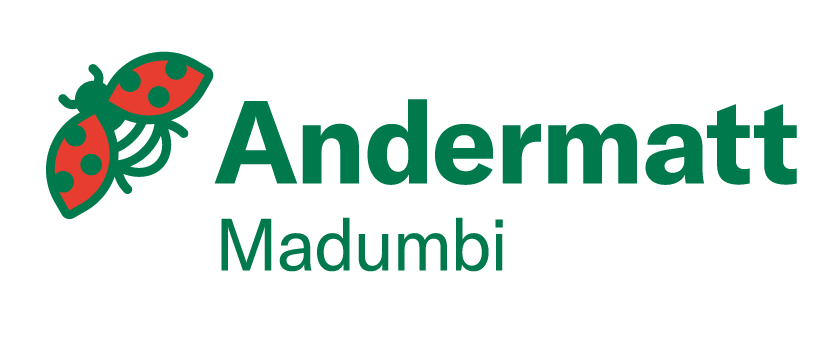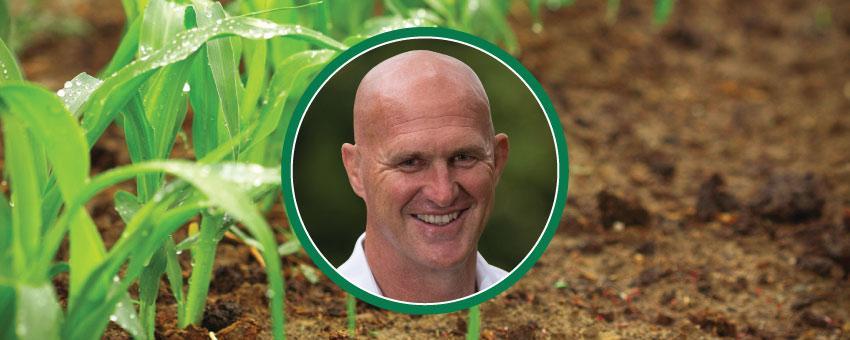“The diseases and pests crop farmers have to face, make Covid-19 look like a drop in the ocean”.
These are the words of Andre Fox, Andermatt Business Development Director.
Andermatt Madumbi is a driver of the biological revolution in agriculture, with a footprint in the industry for over 17 years, and founder, Andre Fox was invited to speak to farmers at the Son Safari Agricultural Show held in Mauritius in May this year.
“It’s predicted that within 21 years, the biological crop protection industry will be just as big as the synthetic industry, but personally I think it’s closer than we think,” he said.
His belief is that you either take the lead in revolutionising this market, or risk losing it.
He told Maroela Media that the industry is growing at 15% a year, and that food production will look dramatically different in the next 10 to 15 years.

Biological plant protection requires a farmer to regularly inspect his crops to spot and combat infestations in a timely way.
Fox said there is a renewed focus on soil, plant, and human health; and consumers are becoming increasingly aware of where their products come from, while retailers are becoming increasingly strict with the maximum residue levels (MRLs) of chemical products on crops. The market is looking for more “soft” products, and is willing to pay more for them.
Unfortunately, biological agriculture is currently more complex, expensive and presents more challenges than conventional practices, but there are different practices, such as composting and green fertilization, that are still in their infancy and have a lot of potential.
“Farmers are becoming more sustainable and using fewer and fewer synthetic products, but I am not a proponent of just one or the other. The best method is still combinations of synthetic and biological products. We should also move away from the term “organic” and instead look at integrated pest control.”
However, Andre warns that biological and synthetic products can work against each other, and that a farmer should sit regularly with his or her advisor so that he knows when he needs to. The operators on the farm must also be properly trained and understand how the products work, and how to use them.
“For example, you can’t put fungi in the soil and just after that inject a fungi inhibitor, or place copper with a bacterium. The application strategy must be compatible, accurate and timely.”
He emphasized that biological agents are not a panacea and that farmers will have to undergo a paradigm shift. “Farmers will have to spend more time in the fields, monitor their crops continuously, and know the life cycle of the pests and pests. The levels of contamination should be determined in time and you need to spray only if it needs to. Timing is crucial and calendar spray programs are therefore out.”
Local conditions such as the temperature, UV levels and rainfall should also be taken into account.
Multinational companies are now also entering this market and undertaking in a lot of research and development, leading to lowering the cost of biological products.

Andre Fox, director of business development at Andermatt Madumbi outlines the benefits and challenges of biological plant protection.
Unfortunately, chancers are also entering the market – offering cheaper products that appear attractive but do not work, but with continuous R&D by the multinationals, prices go down, which makes it more difficult for chancers to get a foot in the door.
Lawmakers have been quick to place restrictive regulations on synthetic products, making it more difficult for farmers to use these on the farm. The hoops that biological product developers must jump through are less difficult than their synthetic counterparts.
“Agriculture is going to become increasingly important and farmers will have to take stewardship of their land, and know what is going on beneath the surface. The secret is to farm with nature and not against nature.”
However, he argues that the reward for integrated pest control will be worth it.
Dit is die woorde van Andre Fox, Andermatt Madumbi se direkteur van sake-ontwikkeling.
Sy maatskappy is een van die drywers van die biologiese rewolusie in landbou en hy was genooi om by die Son Safari-landbouskou in Mauritius met die boere te praat. Andermatt Madumbi is al 17 jaar in dié bedryf.

Biologiese plantbeskerming vereis dat ‘n boer gereeld sy gewasse moet inspekteer om besmettings betyds raak te sien en te bekamp.
“Daar word voorspel dat die biologiese gewasbeskermingsbedryf binne 21 jaar net so groot soos die sintetiese bedryf sal wees, maar ek dink dit is nader as wat ons dink,” sê hy. Sy slagspreuk is om in hierdie mark die leiding te neem, of dit te verloor.
Hy het vir Maroela Media gesê dat dié bedryf teen 15% per jaar groei en dat kosproduksie in die volgende tien tot 15 jaar dramaties anders gaan lyk. “Derhalwe moet boere vasbyt.”
Hy sê daar is ʼn hernude fokus op grond-, plant,- en menslike gesondheid en verbruikers raak toenemend bewus van waar hulle produkte vandaan kom en kleinhandelaars word al hoe strenger met die minimum oorblyfselvlakke (MRL’s) van chemiese produkte op gewasse. Die mark soek meer “sagte” produkte op die tafel en is bereid is om duurder daarvoor te betaal.
Ongelukkig is biologiese landbou tans ingewikkelder, duurder en bied dit meer uitdagings as konvensionele praktyke, maar daar is verskillende praktyke soos kompostering en groenbemesting wat nog in sy kinderskoene is en baie potensiaal inhou.
“Boere raak meer volhoubaar en gebruik al hoe minder sintetiese produkte, maar ek is nie ʼn voorstander van net die een of die ander nie. Die beste metode is steeds kombinasies van sintetiese en biologiese produkte. Daar moet ook wegbeweeg word van die term “organies” en eerder gekyk
word na geïntegreerde pesbeheer.”
Hy waarsku egter dat biologiese en sintetiese produkte teen mekaar kan werk en dat ʼn boer gereeld saam met sy raadgewer moet sit sodat hy weet wanneer hy wat moet. Die operateurs op die plaas moet ook behoorlik opgelei wees en verstaan hoe die produkte werk en hoe om dit te gebruik.
“Jy kan byvoorbeeld nie fungi in die grond sit en net daarna ʼn fungi-inhibeerder spuit nie, of koper saam met ʼn bakterie plaas nie.” Die toedieningstrategie moet versoenbaar, akkuraat en betyds wees.”
Hy beklemtoon dat biologiese middels nie ʼn wondermiddel is nie en dat boere ʼn paradigmaskuif sal moet ondergaan. “Boere sal meer tyd in die veld moet deurbring en hul gewasse deurlopend moniteer en die lewensiklus van die peste en plae ken. Die vlakke van besmetting moet betyds bepaal word en jy moet slegs spuit as dit moet. Tydsberekening is van kardinale belang en kalenderspuitprogramme is dus uit.”
Plaaslike omstandighede soos die temperatuur, UV-vlakke en reënval moet ook in ag geneem word.
Multinasionale maatskappye betree ook nou hierdie mark en doen baie navorsing en ontwikkeling, wat daartoe lei dat die koste van biologiese produkte laer word.

Andre Fox, direkteur van sake-ontwikkeling by Andermatt Madumbi sit die voordele en uitdagings van biologiese plantbeskerming uiteen.
Dit help ook dat kansvatters moeilik in die mark kan kom. Ongelukkig bied kansvatters goedkoper produkte wat baie verleidelik is.
Die wetgewers bly ook nie agter nie en die beperkende regulasies op sintetiese produkte word feller.
Die hoepels waardeur biologiese produktemaatskappye moet spring is dus baie minder as met die goedkeuring van sintetiese produkte.
“Landbou gaan ook al hoe belangriker word en boere sal rentmeesterskap van hul grond moet neem en weet wat onder die oppervlak aangaan. Die geheim is om saam met die natuur en nie teen die natuur te boer nie.”
Hy voer egter aan dat die beloning vir geïntegreerde pesbeheer die moeite werd sal wees.
Article : https://maroelamedia.co.za/landbou/landbouproduksie/meer-boere-kies-biologiese-plantbeskerming/

